About life journey with Anca Dumitrescu
We live in a bubble. Whether it is our neighbourhood, our group of friends, our working ground, our Facebook wall, whether we live in a country or two, we still live in a bubble. Our beautiful bubble. We’ve made it and we love it.
We take the same road going to work, we buy our coffee from the same place we love, go out with the same people we love, we tend to create routines. Routines are good for the soul, they give us this familiar feeling and comfort but, in order to grow, we need to break from routines every once in a while and step out of our comfort zone. In other words, we need change, challenges, to take new paths and meet new people.
Meeting Anca Dumitrescu wouldn’t have been possible if I hadn’t challenged myself to leave my own bubble and my routines and relocate to the Netherlands. I hadn’t met Anca there, but somehow this road took me to her and I am grateful for that.
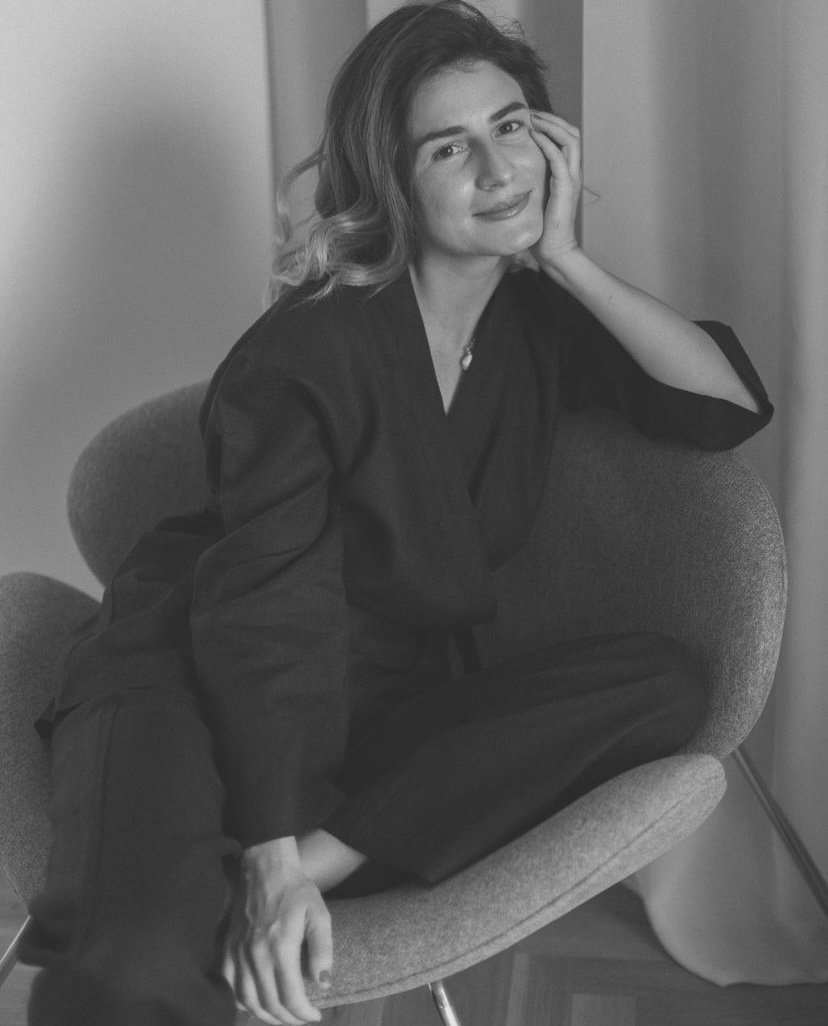
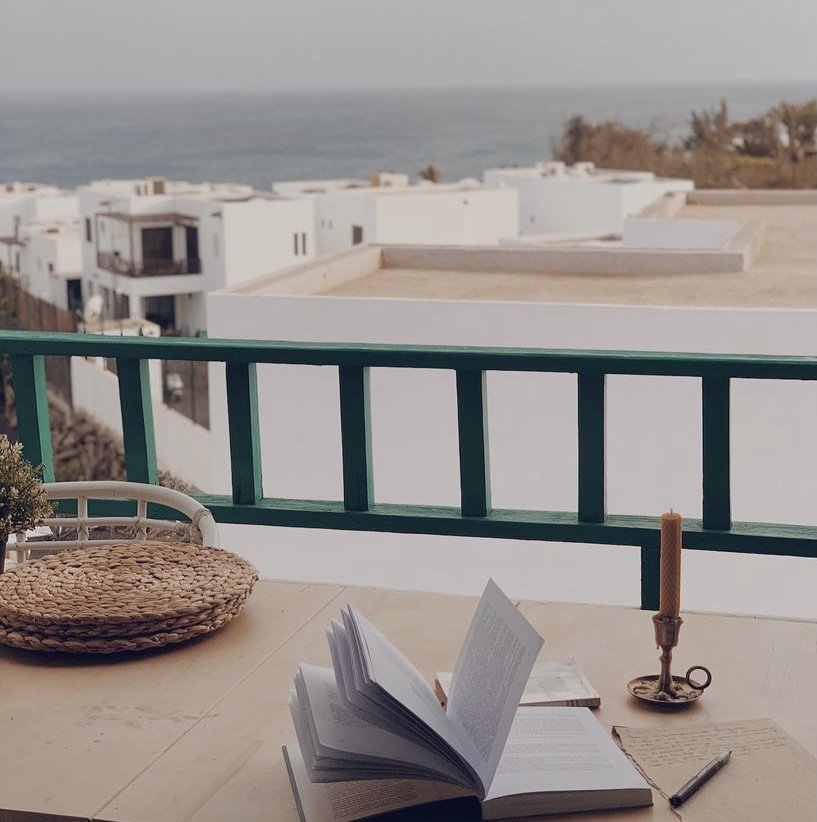
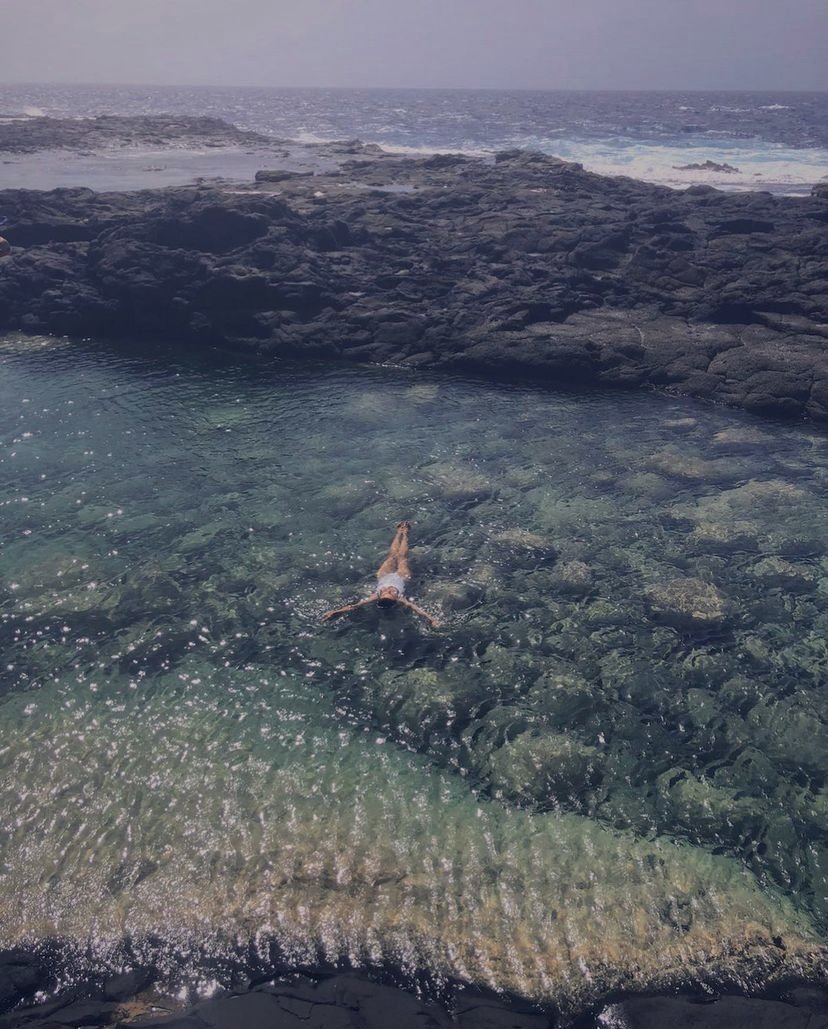
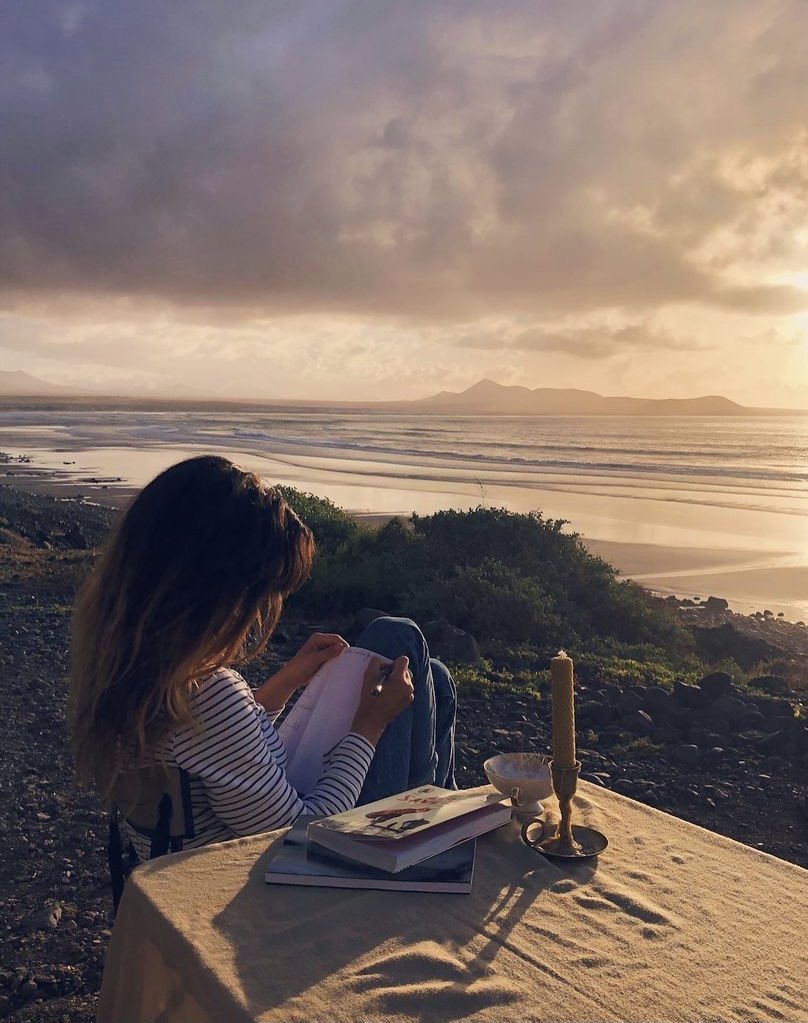
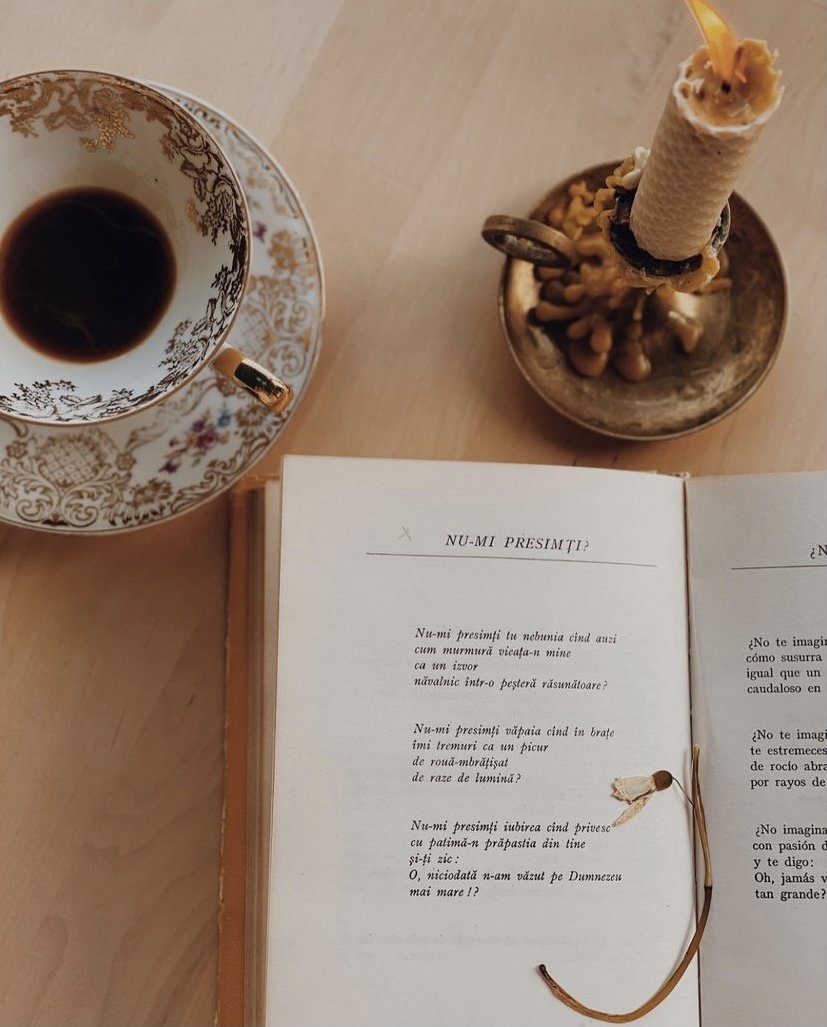
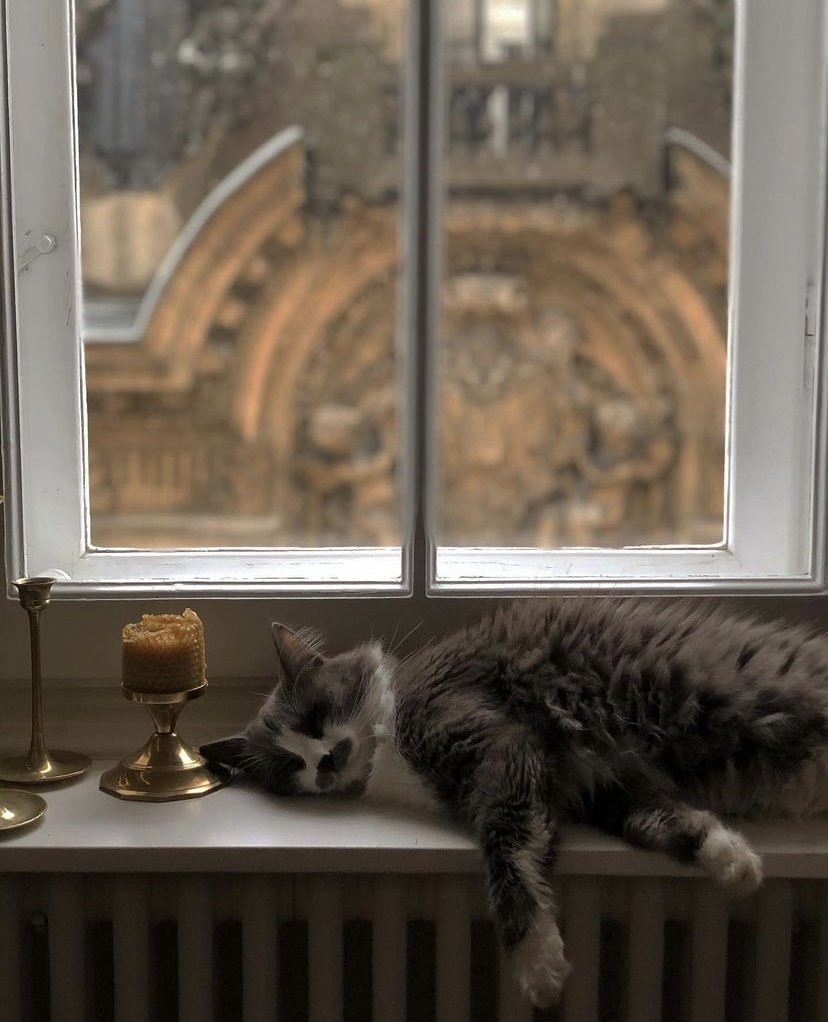
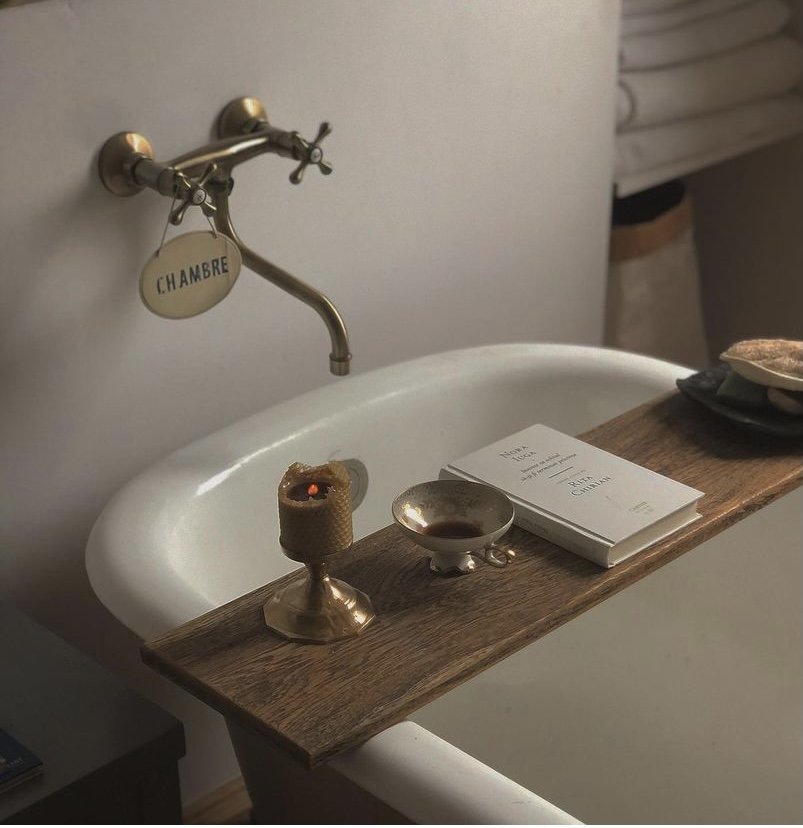
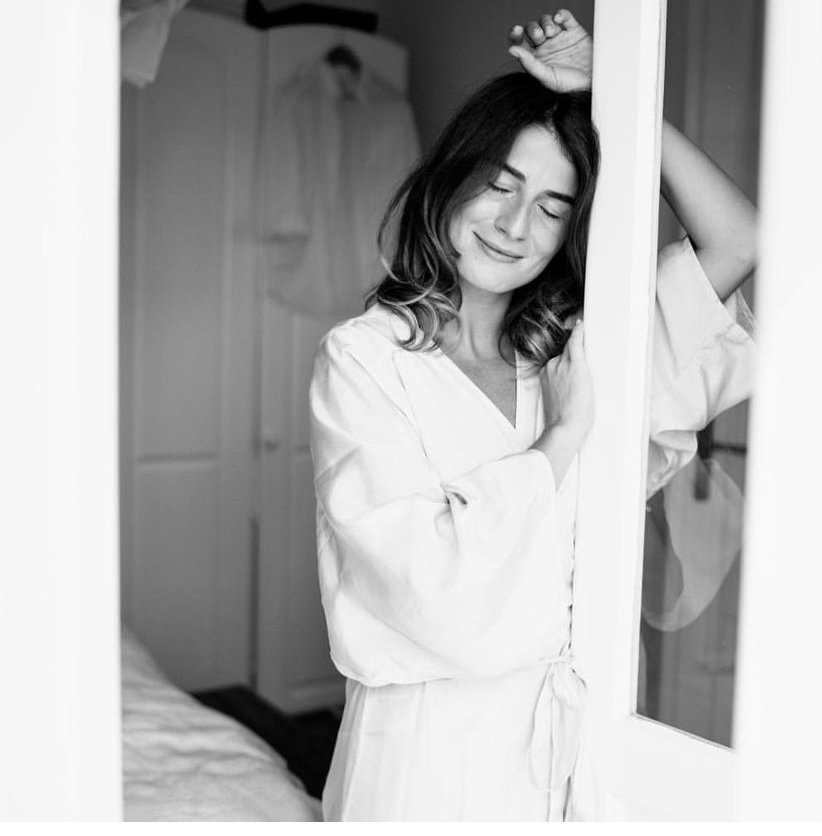
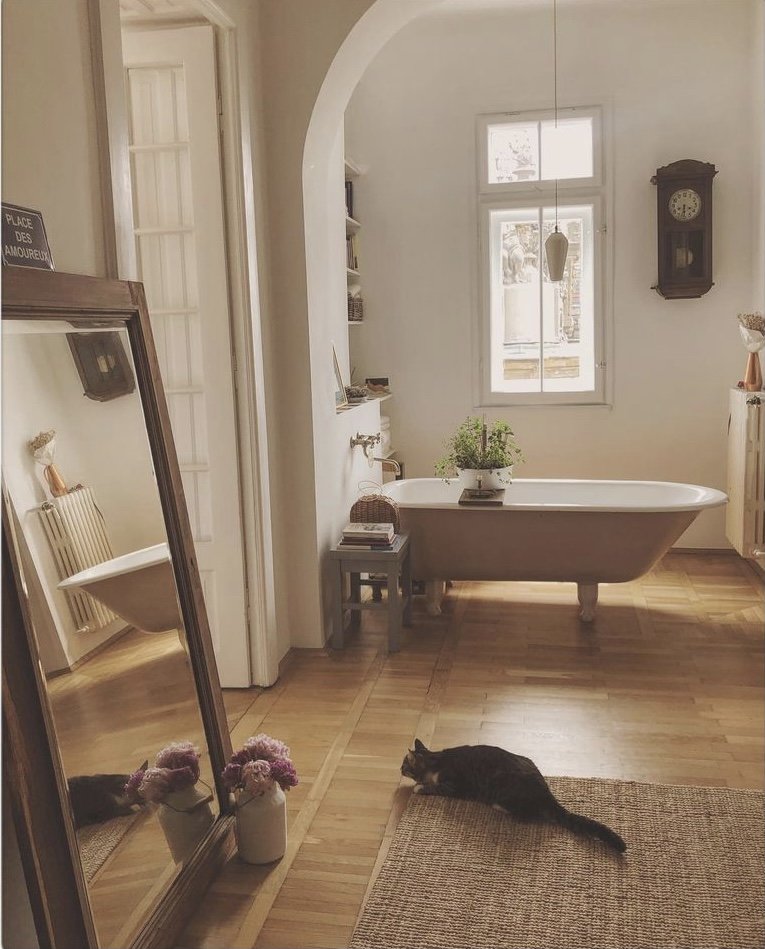
Anca is a special woman. She is a successful entrepreneur, running two different businesses, a writer and a happy person. She spends her life between Bucharest and the Canary Islands — “isla de mi corazon” — as she calls it, between running the businesses and writing books. She must be very busy and yet, when you look at her Instagram page, it looks like she is in a permanent vacation. Because she seems to do only the things she loves and she is successful in doing it.
Anca, a journalist by formation, is the kind of person that decided to conquer the world. She left her birthplace, Petosani, determined to grow wings and fly away. Her first business, “I want to become a flight attendant,” allowed her to do that. She started it with a lot of courage and zero knowledge in the domain.
We have something in common with Anca, a sense of beauty, I would say. Her other business, Philocaly, is an online shop specialising in vintage tableware. In Greek, philocaly literally means lover of the good and the beautiful.
Anca, tell us how you started to be an entrepreneur and around what time in your life this happened.
I was studying Journalism in Bucharest and the idea of going home for the summer holiday after my first university year, was terrifying for me. Bucharest was heaven on earth for a girl from Petrosani, a sort of “fin del mondo” city. Imagine I went for the first time by the metro in June 2007. Until that time I had travelled very little and only inside the country, so you will understand my fascination with the capital was huge. Staying here during the summer vacation was the right motivation to go and look for a job in order to be able to sustain myself. I got myself two part-time jobs: one as a journalist for a juridical online publication and another one, in the evening, for the radio station “Student FM.” This is how I spent my summer and how I started my professional life. In the autumn, the managers of the publication offered me a full-time job, allowing me a certain flexibility to continue my studies.
One year later, I was proposed the editor in chief position. I was still in the 3rd year of university, I didn’t even have a diploma yet, I had no managerial experience… so imagine my surprise!
Why do you think they proposed this to you? What did they see in you?
I loved my job, even if it was not a very creative domain; it had to do more with the juridical field. I think I was very good at transforming a sterile judicial text into news that is easier to understand for the great public. In the beginning, I was the first person to arrive at work and the last one to leave. I guess I had the motivation of someone coming from the province who doesn’t want to go back there and maybe this is how I became one with my job. The job was like the salvation for me.
Starting with such a demanding role so early came also at a price. I always had to prove to the rest of the team that I can, that I am capable, that I am efficient, that I can be a leader at the age of 22. I was trying hard; I was overdoing it with my job.
So, what did you take from this experience that helped your next entrepreneurial step?
When I left this job, 5 years after, I was well prepared to be on my own. I learned the hard way what it means to be responsible. You know, every day was like a training for the future. I learned the online world: from how to build an online platform, a site, how to manage a forum, how to maintain the relationship with the press or how to organise events. All this was the basis for the first business “I want to be a flight attendant.” Of course, my partner Georgiana, who is also a journalist, came also with her experience.
Tell me more about Georgiana. How did you two meet and become partners?
Georgiana is family to me. We met at an entrepreneurial course and interacted with each other in different cultural events that I was involved in. I liked her because of her great common sense plus I felt we share the same appreciation for work. After trying different things together that ended up being of no economic interest, we sat for a coffee and brainstormed. She told me about her dream of becoming a flight attendant and how she got a diploma that she never used. And like her, many other people are in the same situation having a diploma but no guidance on how to get a job. And this made a click to me: we can do something to help those people use the diploma and get a job. My level of knowledge in the domain was zero, but I immediately understood the potential it has. I realised we have a golden fish in our hands. The universe gave it to us and said: “Take it and work on it well and only afterwards it will make your wishes come true one by one.” I immediately imagined a platform and exactly that night I bought the domain “I want to become a flight attendant” and 3 weeks later we were ready to launch our business. Soon after that, we had our press conference and then everything started to roll. We started our first courses and here we are, a few years later, launching this idea internationally. We make a great team and encourage each other in difficult times. We are very different, but we complete each other. She understands my creativity, I understand her down-to-earth personality.
How has the pandemic affected your business?
I always had the feeling that this would be temporary. I knew it would pass and we need to be ready for that moment. There were a lot of lay-offs of personnel during the pandemic. Once people left their jobs, it was not very clear if they would ever return, maybe they would find something else in the meantime. So, we knew that, once the restrictions were over, the companies would restart hiring people. The flight attendant is a vital part of a flight. And here we are: since February this year, we have been back in business.
Whereas things might not have been so great during the pandemic for “I want to become a flight attendant,” it is exactly during this time that your second business, Philocaly, was born. Tell us about it.
Indeed, Philocaly is the Pandemic’s baby. When I was little, my grandmother used to say to me: “Your mind belonged to some old ladies before,” meaning I had an old soul. I was raised by my grandparents up to 7 years old. Only later did I realise what she meant. In our home, my dad always collected vintage objects to a point where we had to change our apartment for a bigger house. My mum always complained about lack of space. One day, my mum and I said we needed to take advantage of my dad's passion and give him a new scope after retirement. So, the birthplace of Philocaly is Petrosani. And it is funny because you know I never wanted to go back to Petrosani. Every time I had to go there, I did it only to see my parents. I didn’t know how to escape faster. I had the fear that, if I went too often, I would stay there. And here I am, once Philocaly started, doing monthly trips to Petrosani and finally putting an end to this fear.
Philocaly came at a very good moment for all of us, especially for my mum. She was revived during that period. She had a personal hard time because her mother had been in bed for a year and finally died in December 2020. They were very close to each other and Philocaly was a good distraction from the real problems of life and somehow came like a compensation: something beautiful was born in a sad moment.
So, has Philocaly acted like a reconnection to the birthplace? A home-coming to Petrosani?
My parents know I don’t consider Petrosani home, but home is not a place anymore. Of course, it is my unconditional love nest. I know when I go back there I feel I am still a child. Petrosani is a place full of emotions, I have a terrible time every time I must leave this place, I feel I am overwhelmed by feelings of love for my parents. I am grateful for this, for the love I have been surrounded by.
“I believed that I wanted to be a poet, but deep down I just wanted to be a poem.”
You seem to be a very positive person. What makes you happy?
Even in the most dramatic moments of my life — and I have been through a lot —, I try to be happy. It is like a “modus vivendi.” I am always conscious about the passage of time. I have a big wish to live my life and not let time live it for me. I was saying to myself: "Now I want to work, now I want to feel, now I want to enjoy…” and this “now” became a presence, a realisation that I need to get organised and advance, so I can afford my freedom afterwards. For example, now I have to work for six weeks before I can afford to rest for some time on the island. I am a happy person because I live the life as I have imagined. I don’t wish to do something else or have more things. I have never felt the need to possess anything. The island taught me that I don’t need much to be happy.
Besides your business endeavours, recently you have also focused on your creativity. You have written and launched a book this year. How do you feel about it?
I have been writing since 2012. When I resigned from my journalism job, I was afraid I would not be able to write anymore. So, I started writing and I did so until I had no more words. Between 2016 and 2019, I couldn’t write anything. I just couldn’t find myself in writing. I was going through a period in which I didn't have too many butterflies in my stomach. I had no big pains, but no big pleasures neither. It was a flat period. The days seemed all the same. I was focused on work most of the time. At the beginning of 2019, I said to myself “I am not sure if I still feel alive. I need a sign from the universe.” And I got one. Once I arrived on the island, I was revived. My first book appeared like a miracle, out of the blue. In June 2020, the people from the Heyday publishing house contacted me and proposed that I gather all the texts I used to have on my blog and publish them into a book. It had never crossed my mind before. I would never have approached a publishing house myself. I couldn’t evaluate my texts and, to be honest, I was afraid of negative feedback. After all, writing is a personal thing.
“Microscope for the soul” is a collection of texts, poems from a strange period of my life. When I finished the manuscript and read it, I realised it was a bit sad. I was writing, hoping to heal my feelings. I realised that this period of my life was over. The day the book was launched was the happiest day in my life. And I was on the island during that day.
Now I am working on my second book. It is something I wanted to return to this island that gave me so much. Some texts were written on the island and others in Bucharest, thinking of the island. I love the feelings this island is giving me, the relaxation and simplicity that comes with it. I feel like I have always lived there.
You do seem to have accomplished a lot so far. What is it exactly that drives you in life? What made you become the person you are today?
I always felt responsible, I had to be on my own during my studies to afford the life I wanted to live. So maybe, yes, the financial needs were my first drive. And after that, I think it was the happiness of everyday life, being able to work in the entrepreneurial field where I could feel free, use my creativity and have a great relationship with my business partner. I think I wouldn’t have been able to get here without Georgiana.
How would you describe your style and what role does jewellery play in it?
For several years, I have had fewer and fewer pieces in my wardrobe. I think that, with age, you get to the moment when you don't want to waste time in front of the closet, thinking about what to wear today. However, this does not make me a person who prefers “comfort” in the way I dress. I look for femininity in all my outfits. The details that define me are a beautiful lace, a silk shirt, a vintage dress that my mother also wore with joy, a pair of classic jeans, white dresses throughout the warm summer days and my personal weakness: the KIMONOS. I've never looked for trends or worn anything just because it's “fashionable.”
When I wear jewellery, I like to wear a statement piece only, something I have a special relationship with. The story of the jewellery attracts me, the place where I bought it, the context. All I know is that the jewellery, its story and its design must carry me smoothly to other worlds, clearly more beautiful. I have some favorite pieces from The Sense of Beauty…

















